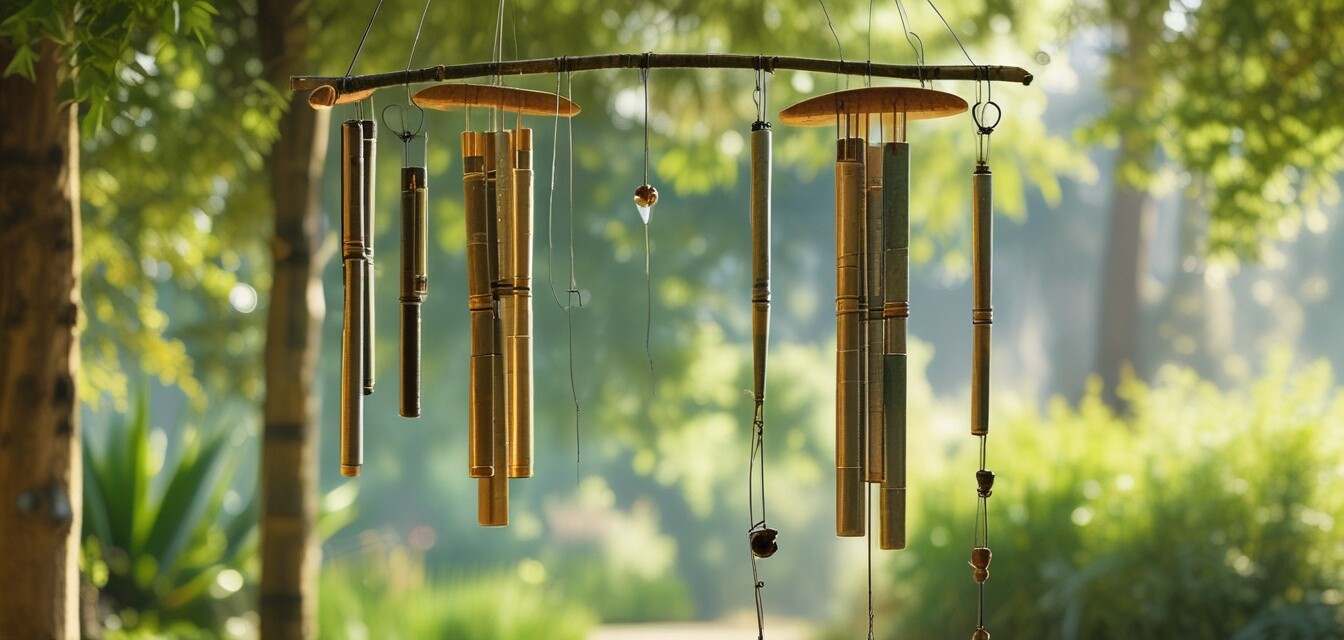
The Healing Sounds of Musical Wind Chimes
- Wind chimes produce harmonious sounds that can enhance relaxation.
- Different materials affect the tone and quality of the sound.
- Strategic placement of wind chimes can create calming environments.
- A thorough understanding of acoustic benefits allows for informed choices.
Wind chimes are more than just decorative items. They are tools that can transform your living space into a serene sanctuary through their melodic sounds. In this article, we will explore the acoustic benefits of musical wind chimes and how they can contribute to wellness.
Understanding the basics of wind chimes
Musical wind chimes consist of suspended tubes or rods that produce sound when blown by the wind. The sound they create can vary significantly based on their materials, size, and shape.
Types of wind chime materials
| Material | Sound Quality | Durability |
|---|---|---|
| Bamboo | Warm and soft tones | Moderate (can weather over time) |
| Metal | Clear and resonant tones | High (long-lasting) |
| Glass | Chiming and tinkling sounds | Moderate (can break if dropped) |
| Wood | Rich and mellow sounds | Moderate (depends on treatment) |
The science of sound and acoustics
The sounds produced by wind chimes are a result of different acoustic properties associated with the materials used. Understanding these properties can enhance your ability to select chimes that create a desired atmosphere.
How sound waves work
When wind blows through or against the chimes, it sets them in motion, causing vibrations that translate into sound waves. The pitch and tone produced can be influenced by:
- Length of the chime
- Diameter of the chimes
- Material used
Creating harmonious environments with wind chimes
Integrating wind chimes into your surroundings is not only about aesthetics; it's also about crafting an auditory experience. Here are some tips on how to use wind chimes effectively:
Tips for beginners
- Choose the right material based on your desired sound.
- Place chimes in areas with consistent breezes for continuous sound.
- Hang them at varying heights to create a layered sound effect.
- Consider the environment: rustic gardens, patios, or cozy corners indoors.
The emotional impact of sound
Different musical notes can evoke various emotions. Wind chimes designed to play specific notes may contribute to a calming atmosphere in your home or garden. Here’s a breakdown of how notes can affect feelings:
| Musical Note | Emotional Response |
|---|---|
| C Major | Uplifting and energetic |
| A Minor | Calming and introspective |
| G Major | Joyous and happy |
| D Minor | Sophisticated and warm |
Choosing the right wind chimes for your needs
When selecting wind chimes, consider their sound quality, material, and style. If you're more focused on acoustic benefits, you might want to explore specific categories of wind chimes.
For additional resources, browse through our Bamboo Wind Chimes, Metal Wind Chimes, or Buying Guides to make an informed decision.
Placement for optimal sound
To maximize the acoustic experience of your wind chimes:
- Find a location where winds are consistent but not destructive.
- Ensure the chimes are visible to enhance their decorative value.
- Consider nearby plants or structures that might dampen the sound.
Conclusion
Incorporating musical wind chimes into your environment is a delightful way to enhance relaxation and enjoyment. By understanding the types of materials, sound properties, and strategic placements, you can create a harmonious space that resonates with beauty and serenity. Explore more about the acoustic benefits and discover the best wind chimes that suit your space.
Pros
- Creates relaxing auditory experiences.
- Available in various materials and designs.
- Enhances outdoor and indoor environments.
Cons
- Can be affected by weather conditions.
- Some materials may require maintenance.
- Sound levels vary based on wind strength.